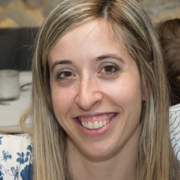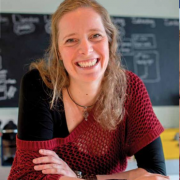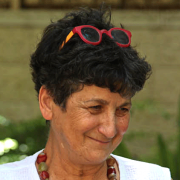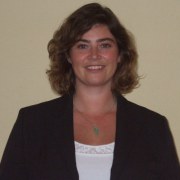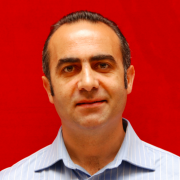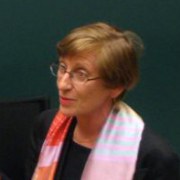This hands-on workshop will give participants the chance to try out ready-made gender-related educational resources available in several languages that they can implement in museums, schools and even industry settings.
Come to 'test your self' on your sub-conscious associations regarding gender and STEM, to 'find the stereotypes' behind the representation of women in media, to share your opinion about the connection between gender and science. These are a few of the activities that will be presented and tried out by participants. The showcased activities are designed for 13-18 year old teenagers (boys and girls), and relate to topics of gender and science.
Facilitator
Session speakers
Head of Public Engagement
milan
Italy
Director
Jerusalem
Israel
WHAT’S YOUR OPINION? ABOUT THE CONNECTION BETWEEN GENDER AND SCIENCE
An activity for youth (15-18) and adults. Offers an interactive way to confront participants with their own prejudices and stereotypes. In an individual, secret ballot, each participant expresses an opinion regarding stereotypical claims as to whether females are capable of, and suitable to scientific and technological professions. Thereafter, discussions are held in small groups and in the plenum on the reasons for the under-representation of women in some fields of STEM (Science, Technology, Engineering and Mathematics), on the value, social and economic importance of equal opportunities, and on proposals for activities that could improve the existing situation.
CEO
Bristol
United Kingdom
The UK Association for Science and Discovery Centres is leading
a UK-wide push towards a National Strategy for Gender inclusion
in STEM. This has been inspired by Hypatia and In March we
convened a vibrant workshop of 62 organisations, including
politicians, Government, teachers, scientists, industry
and national activists, where each organisations
pledged publically to make changes to increase gender inclusion,
using many hypatia resources and several tools from UK organisations. We will showcase some of these.
Assistant for External Funding and Event Management
Science Centre AHHAA Foundation
Tartu
Estonia
Will present AHHAA's dissemination plans up to June 2017 and the steps that had to be taken to customize all the materials to better relate to Estonian culture, language and school-culture.
Will also carry out a shortened version of one hands-on workshop (presenting the module for experimentation and critical thinking in classroom) and introduce the necessary steps that need to be made so that teachers (in Estonia) would actually start using the modules during classroom activities.
Assistant Professor in Science Education
Dublin
Ireland
Associate Professor of STEM Education
Hacettepe STEM & Maker Lab
Ankara
Turkey
Will present an activity fromt he STING project with Danel Solabarrieta. The activity aims to increase understanding of how STEM subjects and STEM research could be more inclusive, especially in relation to gender, whithin the context of “responsible research and innovation”. The point of this activity is that gender bias is often hidden and requires reflection and debate in order to bring it to the surface. Thinking about this in terms of responsibility is that, as a society, decisions should be made on the basis of wider and more inclusive participation in processes. This includes researchers being responsible for taking gender considerations into account in decision-making about research topics and projects, as well as the students and teachers with their STEM projects.
Project manager
Elhuyar Foundation
Usurbil
Spain
Will present an activity fromt he STING project with Gultekin Cakmakci. The activity aims to increase understanding of how STEM subjects and STEM research could be more inclusive, especially in relation to gender, whithin the context of “responsible research and innovation”. The point of this activity is that gender bias is often hidden and requires reflection and debate in order to bring it to the surface. Thinking about this in terms of responsibility is that, as a society, decisions should be made on the basis of wider and more inclusive participation in processes. This includes researchers being responsible for taking gender considerations into account in decision-making about research topics and projects, as well as the students and teachers with their STEM projects.
senior project officer
Universcience
Paris
France
Will present one of the activities of the Hypatia toolkit : Find Gender Stereotypes in STEM Representations.
The workshop aimes to make students aware of what gender stereotypes are and how they can influence their choice of studies and careers.
The activity focuses on gender stereotyped representations of science and technology : in ads for computers, smartphones, ..) and in recruitment campains for schools, training or jobs in STEM
Project Manager
Ecsite
Brussels
Belgium
Hacking & Adapting – By playing the STEM Women Cooperative Card Game teenagers are able to discover the role of women in STEM knowledge and inventions throughout history. Suzana will invite workshop attendees to play the game and further explore ways in which the knowledge communicated can be adapted to hack other popular games, like “Guess Who” - #GenderHacking.

